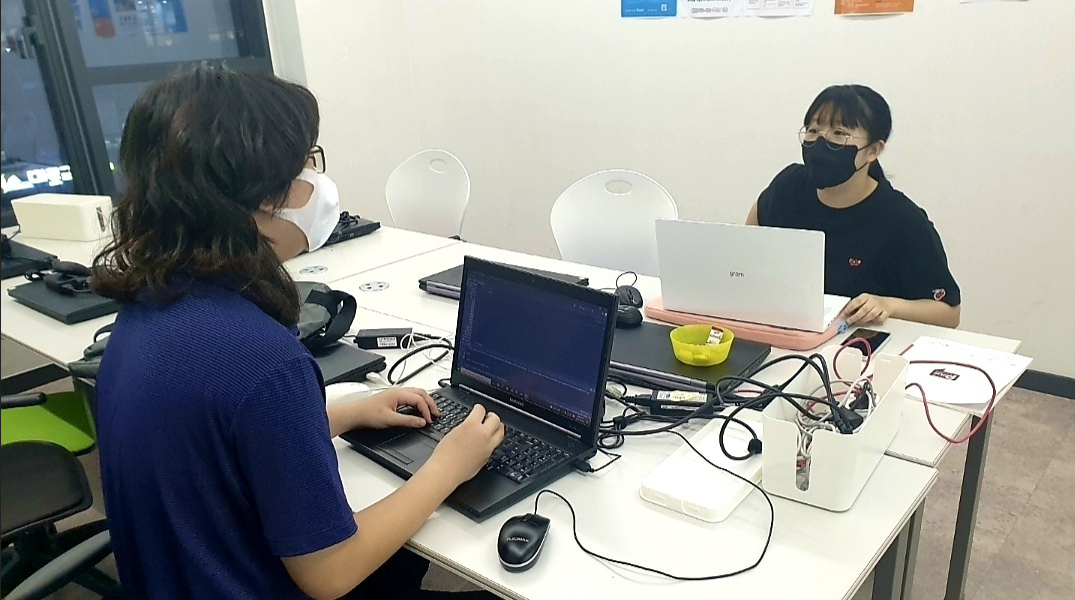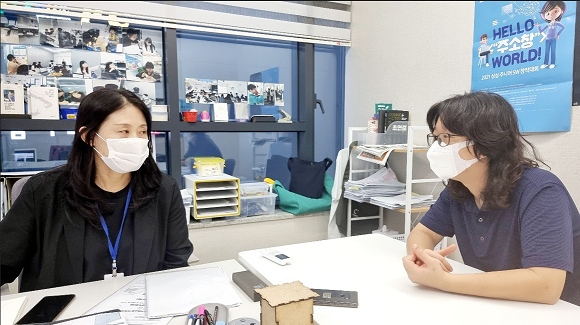Outlooks for the “new jobs” of the 21st century, such as web developers and digital designers, have shown immense growth of more than 8 percent since 2019. Such a growth rate far exceeds the average of all other popular occupations, including lawyers, doctors, and scientists.
The reason behind this phenomenon is the demand created by the continuous popularity of mobile devices and development of several next-generation technologies that require programming.
Therefore, coding education at academies has shown significant growth in order to prepare the new generation of younger students for the advancing trend.
An example of an academy that teaches coding in Korea is a nationwide academy franchise called “C³ (cube) coding.” It specializes in teaching coding through ICT convergence education and project-based learning.
To see if this kind of education helps every student understand programming languages and logic, I interviewed Jiwon Lee, a student of C³ coding.

“It’s not as much fun as I expected,” she exclaimed. For now, I don’t have a clear reason for why I should learn it.” Jiwon recalled the conversation she had with her mother before signing up for a class at C3 coding. “I had no choice when my mother persuaded me to come to the hagwon(private academy) because she said that coding languages will be critical for the future.
“Coding languages are pretty much second languages. Like English, they are languages that every country in the world uses. Because computers will be heavily relied on in the future, people should learn coding languages to operate them,” she explained. “What’s more, the jobs that require coding have extremely high salaries.”
However, even with its apparent importance, it is just hard for many students to comprehend the logic of the languages. Kim said, “What middle school kids feel when they come to learn coding languages is that, for the first year or so, it can be boring and even agonizing.” “However,” she explained, “after that time has passed, they gain the ability and confidence to code, which is the point when it becomes fun and interesting.”
She provided a wise solution: “Students might have little interest in coding at your age, so to prevent that, they should be exposed to it when they are young.”

Senior researcher Kwon Oseong, an educator at C Cube, added, “Only higher grades can comprehend the complicated logic of coding languages. So younger kids start with a coding education system called “Scratch,” which is a program so fun that children don’t even realize they are learning coding.”
“But,” he said, “the coding skills that children learn from Scratch will not improve if they just fool around with it. So the right mindset for younger students is to first imagine what they want to design in a creative way and then learn what coding method is needed to turn that idea into a computer program.”
Kwon went on to add, “It is natural for students to be bored when learning coding. But, unlike subjects with definite answers, such as math and science, coding does not have fixed answers.”
This is because the different meanings of different code combine to create a new system or software that adds value to so many things. Software can be used by everyone to create different meanings.”
Kwon concluded, “I believe that students can find joy in this flexibility and are able to manipulate the system to express their creativity.”

Through these interviews, I found out why students like Jiwon are experiencing problems, and learned about a solution to these problems. I hope that this will be of great help to parents who don't have a clear understanding of how to educate their children on this matter as well as to students who are struggling with similar problems as Jiwon.
Min June You
Grade 8
CMIS Canada

